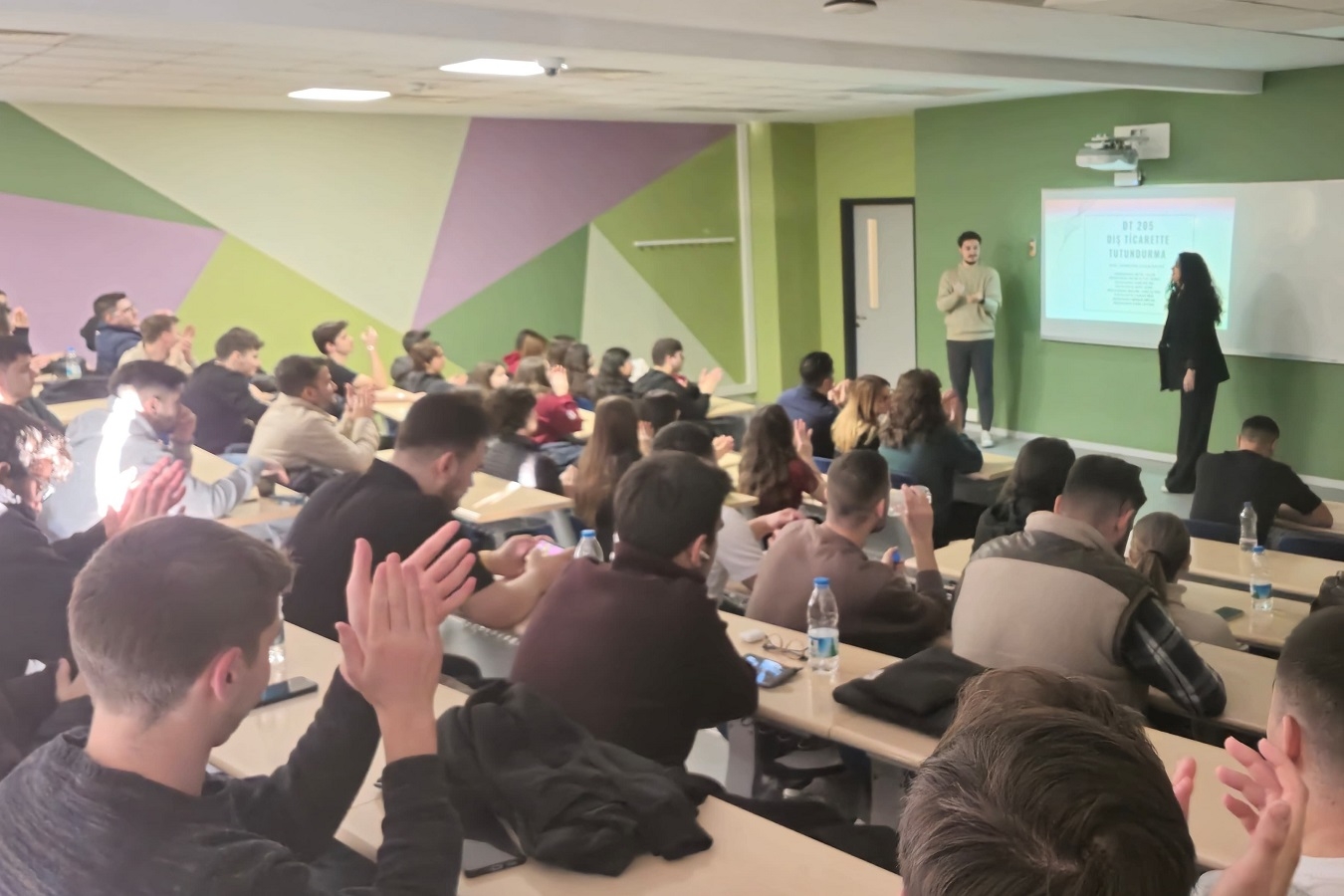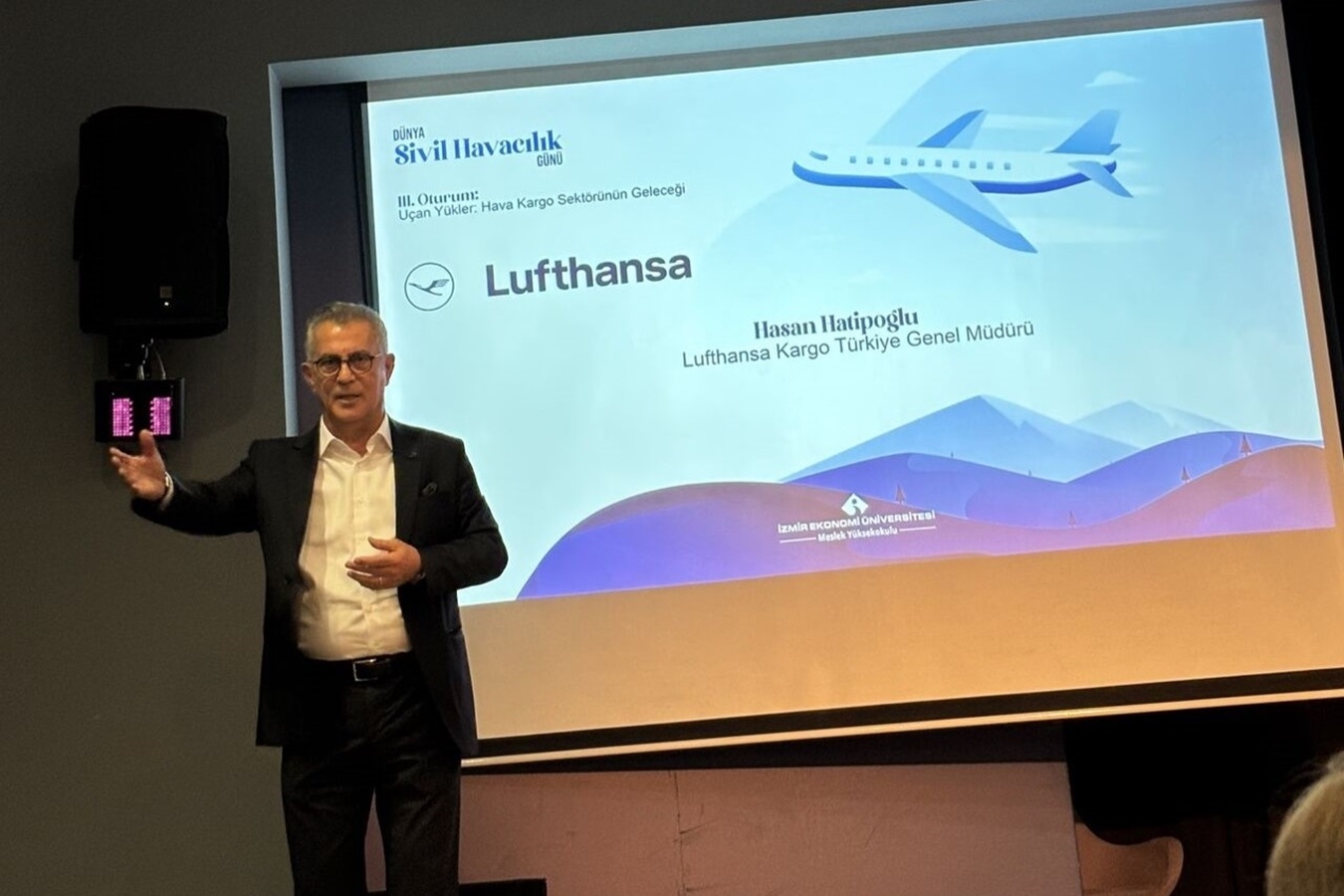DT 100 | Course Introduction and Application Information
| Course Name |
Basic Concepts of Foreign Trade
|
|
Code
|
Semester
|
Theory
(hour/week) |
Application/Lab
(hour/week) |
Local Credits
|
ECTS
|
|
DT 100
|
Fall/Spring
|
3
|
0
|
3
|
6
|
| Prerequisites |
None
|
|||||
| Course Language |
Turkish
|
|||||
| Course Type |
Service Course
|
|||||
| Course Level |
Short Cycle
|
|||||
| Mode of Delivery | face to face | |||||
| Teaching Methods and Techniques of the Course | DiscussionQ&ALecture / Presentation | |||||
| National Occupation Classification | - | |||||
| Course Coordinator | - | |||||
| Course Lecturer(s) | ||||||
| Assistant(s) | - | |||||
| Course Objectives | Students will be able to recognize the fundamental components of foreign trade, identify issues arising within these elements, and choose appropriate solutions based on their needs. By developing the knowledge and skills required of a foreign trade professional, students will be able to apply this knowledge in practice. |
| Learning Outcomes |
The students who succeeded in this course;
|
| Course Description | This course aims to provide an understanding of the fundamental principles and terminology of international trade. The course covers essential concepts such as import, export, customs procedures, international trade agreements, and trade finance. It aims to equip students with the foundational knowledge necessary to comprehend the global trade environment and the operational processes involved in foreign trade transactions. Through theoretical knowledge and practical examples, students will gain insights into the dynamics of international markets and the factors that influence trade relations between countries. |
| Related Sustainable Development Goals |
|
|
Core Courses |
X
|
| Major Area Courses | ||
| Supportive Courses | ||
| Media and Management Skills Courses | ||
| Transferable Skill Courses |
WEEKLY SUBJECTS AND RELATED PREPARATION STUDIES
| Week | Subjects | Related Preparation |
| 1 | Introduction and Overview of the Course: Definition, Historical Development, Scope, Benefits of Foreign Trade, and Differences from Domestic Trade | Kaya, F. (2021). Foreign Trade Operations Management. Beta Publishing. pp. 3-26. Takım, A. (2021). Introduction to International Trade. Ekin Publishing. pp. 65-81. |
| 2 | Classical and Modern Foreign Trade Theories | Kaya, F. (2021). Foreign Trade Operations Management. Beta Publishing. pp. 26-36. Takım, A. (2021). Introduction to International Trade. Ekin Publishing. pp. 107-137. |
| 3 | General Overview and Development of Foreign Trade in the World and Turkey, Entering International Markets | Gürsoy, Y. (2020). Foreign Trade Operations Management. Ekin Publishing. ISBN: 9786257090834, pp. 3-13. Takım, A. (2021). Introduction to International Trade. Ekin Publishing. pp. 9-61. |
| 4 | Export Operations | Kaya, F. (2021). Foreign Trade Operations Management. Beta Publishing. pp. 59-101. Gürsoy, Y. (2020). Foreign Trade Operations Management. Ekin Publishing. ISBN: 9786257090834, pp. 224-258. |
| 5 | Import Operations | Kaya, F. (2021). Foreign Trade Operations Management. Beta Publishing. pp. 103-124. Takım, A. (2021). Introduction to International Trade. Ekin Publishing. pp. 314-321. |
| 6 | Transit Trade, Transportation, and Logistics Operations | Gürsoy, Y. (2022). Foreign Trade Operations Management. Ekin Publishing. pp. 318-338. Takım, A. (2021). Introduction to International Trade. Ekin Publishing. pp. 581-614. |
| 7 | Delivery Methods Used in Foreign Trade | Kaya, F. (2021). Foreign Trade Operations Management. Beta Publishing. pp. 193-218. Takım, A. (2021). Introduction to International Trade. Ekin Publishing. pp. 179-204. |
| 8 | Midterm Exam Week | |
| 9 | Payment Methods Used in Foreign Trade | Kaya, F. (2021). Foreign Trade Operations Management. Beta Publishing. pp. 159-183. Takım, A. (2021). Introduction to International Trade. Ekin Publishing. pp. 205-244. |
| 10 | Financing of Foreign Trade | Kaya, F. (2021). Foreign Trade Operations Management. Beta Publishing. pp. 399-459. Takım, A. (2021). Introduction to International Trade. Ekin Publishing. pp. 537-578. |
| 11 | Key Documents Used in Foreign Trade and the Importance of Contracts | Kaya, F. (2021). Foreign Trade Operations Management. Beta Publishing. pp. 356-397. Takım, A. (2021). Introduction to International Trade. Ekin Publishing. pp. 247-284. Melemen, M. (2023). Practical International Trade Operations. Türkmen Publishing. pp. 41-57. |
| 12 | National and International Organizations Promoting Foreign Trade and Government Support | Kaya, F. (2021). Foreign Trade Operations Management. Beta Publishing. pp. 247-310. |
| 13 | Risk Management in Foreign Trade and Foreign Trade During Crisis Periods | Takım, A. (2023). The Structure and Problems of Foreign Trade in Turkey. Ekin Publishing. pp. 67-89. |
| 14 | Analysis of Turkey’s Foreign Trade Based on Key Economic Indicators | Takım, A. (2023). The Structure and Problems of Foreign Trade in Turkey. Ekin Publishing. pp. 160-207. |
| 15 | Analysis of Turkey’s Foreign Trade Based on Key Economic Indicators | Takım, A. (2023). The Structure and Problems of Foreign Trade in Turkey. Ekin Publishing. pp. 160-207. |
| 16 | Final Exam Week |
| Course Notes/Textbooks |
|
| Suggested Readings/Materials |
|
EVALUATION SYSTEM
| Semester Activities | Number | Weigthing |
| Participation |
1
|
10
|
| Laboratory / Application | ||
| Field Work | ||
| Quizzes / Studio Critiques | ||
| Portfolio | ||
| Homework / Assignments | ||
| Presentation / Jury |
1
|
20
|
| Project | ||
| Seminar / Workshop | ||
| Oral Exams | ||
| Midterm |
1
|
30
|
| Final Exam |
1
|
40
|
| Total |
| Weighting of Semester Activities on the Final Grade |
3
|
60
|
| Weighting of End-of-Semester Activities on the Final Grade |
1
|
40
|
| Total |
ECTS / WORKLOAD TABLE
| Semester Activities | Number | Duration (Hours) | Workload |
|---|---|---|---|
| Theoretical Course Hours (Including exam week: 16 x total hours) |
16
|
3
|
48
|
| Laboratory / Application Hours (Including exam week: '.16.' x total hours) |
16
|
1
|
16
|
| Study Hours Out of Class |
14
|
4
|
56
|
| Field Work |
0
|
||
| Quizzes / Studio Critiques |
0
|
||
| Portfolio |
0
|
||
| Homework / Assignments |
0
|
||
| Presentation / Jury |
1
|
14
|
14
|
| Project |
0
|
||
| Seminar / Workshop |
0
|
||
| Oral Exam |
0
|
||
| Midterms |
1
|
20
|
20
|
| Final Exam |
1
|
26
|
26
|
| Total |
180
|
COURSE LEARNING OUTCOMES AND PROGRAM QUALIFICATIONS RELATIONSHIP
|
#
|
Program Competencies/Outcomes |
* Contribution Level
|
|||||
|
1
|
2
|
3
|
4
|
5
|
|||
| 1 |
To be able to track current developments in the field of international trade and analyze its impacts. |
X
|
-
|
-
|
-
|
-
|
|
| 2 |
To be able to possess knowledge of state aids, incentives, and grant programs related to foreign trade. |
-
|
X
|
-
|
-
|
-
|
|
| 3 |
To be able to utilize online and software-based programs to obtain and report statistical data related to international trade. |
-
|
-
|
X
|
-
|
-
|
|
| 4 |
To be able to have knowledge about national and international legal rules and regulations used in foreign trade. |
-
|
-
|
-
|
-
|
-
|
|
| 5 |
To be able to apply branding, digital marketing, and promotional activities in the fields of international trade. |
-
|
X
|
-
|
-
|
-
|
|
| 6 |
To be able to analyze risks arising from economic, political, legal, and social environmental conditions in foreign trade. |
-
|
-
|
X
|
-
|
-
|
|
| 7 |
To be able to plan and implement decision-making processes in logistics and supply chain management. |
-
|
X
|
-
|
-
|
-
|
|
| 8 |
To be able to have knowledge about the current status and updates of national and international customs procedures and taxation processes. |
-
|
-
|
-
|
-
|
-
|
|
| 9 |
To be able to possess written, verbal, and non-verbal communication skills and determine strategies suitable for cultural differences. |
-
|
X
|
-
|
-
|
-
|
|
| 10 |
To be able to effectively use at least one foreign language to gather information and communicate in the field of foreign trade ("Common European Framework of Reference for Languages," A2 level). |
-
|
-
|
-
|
-
|
-
|
|
| 11 |
To be able to acquire basic knowledge in economics, finance, and accounting, be familiar with banking and exchange regulations, and follow developments in these areas from a foreign trade perspective. |
-
|
-
|
-
|
-
|
-
|
|
| 12 |
To be able to assess knowledge in societal contribution topics such as environmental sustainability and economic development, and make decisions based on the principles of professional ethics, accountability, and responsibility. |
-
|
-
|
-
|
-
|
-
|
|
| 13 |
To be able to possess interdisciplinary working skills and apply these skills in professional life. |
-
|
-
|
-
|
-
|
-
|
|
*1 Lowest, 2 Low, 3 Average, 4 High, 5 Highest
NEWSALL NEWS

NEW GÜZELBAHÇE CAMPUS
DetailsGLOBAL CAREER
As Izmir University of Economics transforms into a world-class university, it also raises successful young people with global competence.
More..CONTRIBUTION TO SCIENCE
Izmir University of Economics produces qualified knowledge and competent technologies.
More..VALUING PEOPLE
Izmir University of Economics sees producing social benefit as its reason for existence.
More..










